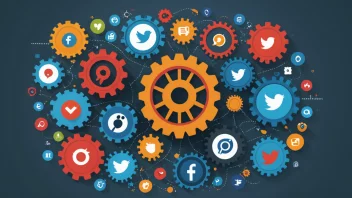The landscape of work is evolving rapidly, influenced by technological advancements, shifting societal norms, and the ongoing effects of global events. Understanding these trends is essential for both employers and employees as they navigate the future labor market. This article explores some of the key trends shaping the future of work.
One of the most significant trends is the rise of remote work. The COVID-19 pandemic accelerated the adoption of remote working practices, proving that many jobs can be performed effectively outside traditional office environments. Companies are now recognizing the benefits of flexibility, which leads to improved employee satisfaction and productivity. According to recent studies, a hybrid model of work—combining remote and in-person collaboration—may become the standard, allowing employees to choose how they work best.
Another trend is the increasing reliance on technology and automation. As artificial intelligence (AI) and machine learning continue to advance, many routine tasks are being automated, freeing up employees to focus on more complex and strategic work. This shift necessitates a workforce that is adaptable and skilled in technology. Upskilling and reskilling initiatives are becoming crucial as workers need to learn new tools and methodologies to remain competitive in their fields.
Additionally, there is a growing emphasis on diversity and inclusion in the workplace. Organizations are recognizing that a diverse workforce can drive innovation and better decision-making. Companies are implementing policies and practices to promote inclusivity, ensuring that all employees feel valued and empowered. This trend is not only about compliance but is also a strategic advantage in attracting and retaining top talent.
The gig economy is also reshaping the labor market. More individuals are opting for freelance or contract work, seeking flexibility and autonomy over their careers. This shift presents both opportunities and challenges, as gig workers often lack the benefits and job security associated with traditional employment. As this trend continues, discussions around workers' rights and protections are becoming increasingly important.
Finally, mental health and well-being are gaining recognition as essential components of the workplace. Employers are beginning to prioritize mental health initiatives, offering resources and support to help employees manage stress and maintain a healthy work-life balance. Companies that invest in their employees' well-being often see higher levels of engagement and productivity.
In conclusion, the future of work is being shaped by remote work, technological advancements, diversity and inclusion efforts, the gig economy, and a focus on mental health. For both employers and employees, staying informed about these trends is vital for adapting to the evolving labor market. Embracing change and fostering a culture of continuous learning will be key to thriving in this new era of work.






